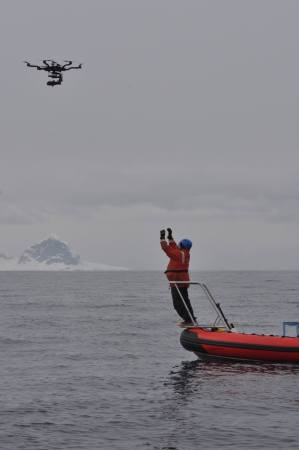

This article was originally featured on Hakai Magazine, an online publication about science and society in coastal ecosystems. Read more stories like this at hakaimagazine.com.
Gretchen Roffler recalls looking out on the waterfront in Alaska’s Katmai National Park and Preserve as three wolves came into view, then disappeared behind some rocks. When the predators returned, all three were gripping the same limp sea otter between their jaws. Working together, the wolves tore the otter to pieces. “It was like a tug of war,” says Roffler, a wildlife biologist with the Alaska Department of Fish and Game.
Roffler and her colleagues paid close attention; they needed to document the June 2021 event in detail. After all, Roffler believes, this was “one of the first observations of wolves killing sea otters.”
Sea otters were extirpated from Alaska in 1830, but their reintroduction over the past few decades has been highly successful. The marine mammal’s resurgence means that in Alaska sea otters and wolves are now inhabiting the same environments for the first time in the modern scientific record. This meeting of historical predator and prey is having important consequences—especially for the region’s deer.
Scientists tend to think that a wolf population’s size is dictated by the availability of ungulate prey like deer and moose. But on the Alaska coast, scientists like Roffler are increasingly documenting cases of coastal wolves munching on marine mammals. In fact, on Pleasant Island, near Glacier Bay National Park and Preserve, Roffler and her colleagues’ analysis of wolf scat has shown that the local wolves have almost entirely switched their diet from deer to sea otters.
Rather than the wolves leaving the deer alone, though, Roffler says that this new source of nutrients has kept the wolf population so healthy that it has wiped out the region’s deer.
By fixing Alaska coastal wolves with GPS collars to see where they were traveling and hunting, and by analyzing wolf scat and hair samples collected between 2015 and 2021, Roffler and her colleagues retraced the changes that have taken place.
Their research shows that sea otters first recolonized the area around Pleasant Island in the early 2000s, while wolves landed on the island in 2013. The deer population crashed in 2015, and by 2016 the wolves were mostly eating sea otters.
While wolves scavenging the occasional sea otter may not be unexpected, Roffler says it’s surprising that a pack could completely switch its diet and continue to maintain a healthy population on a small island devoid of deer. “We assumed what would happen is that the wolves would eat a lot of deer and potentially deplete the population, and then the wolves would either die off or leave,” she says.
The scientists are curious how common this kind of prey switching has been in other areas along the coast where sea otters have also rebounded. They’re also interested in how wolves learn to hunt sea otters—and whether it might be a behavior that can catch on between wolf packs.
So far, Roffler says it is too soon to predict whether wolf populations growing fat on sea otters could spell trouble for deer elsewhere as it has on Pleasant Island, but they suspect it would only have a similar effect on other relatively isolated small islands where wolves have easy access to sea otters.
Chris Darimont, a conservation biologist from the Raincoast Conservation Foundation who was not involved in the study, says that as well as helping us understand how the ecosystem is changing, this kind of work also offers a window into history—before the sea otters were wiped out by hunters. “In a way, we’re having a glimpse into the past by studying something that’s recovering now.”
This article first appeared in Hakai Magazine and is republished here with permission.























